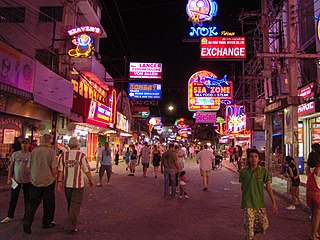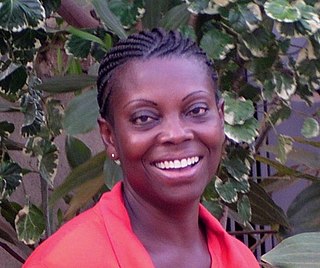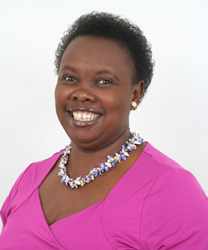
Sexual slavery and sexual exploitation is an attachment of any ownership right over one or more people with the intent of coercing or otherwise forcing them to engage in sexual activities. This includes forced labor that results in sexual activity, forced marriage and sex trafficking, such as the sexual trafficking of children.

Child prostitution is prostitution involving a child, and it is a form of commercial sexual exploitation of children. The term normally refers to prostitution of a minor, or person under the legal age of consent. In most jurisdictions, child prostitution is illegal as part of general prohibition on prostitution.

Prostitution in Thailand is not itself illegal, but public solicitation for prostitution is prohibited if it is carried out "openly and shamelessly" or "causes nuisance to the public". Due to police corruption and an economic reliance on prostitution dating back to the Vietnam War, it remains a significant presence in the country. It results from poverty, low levels of education and a lack of employment in rural areas. Prostitutes mostly come from the northeastern (Isan) region of Thailand, from ethnic minorities or from neighbouring countries, especially Cambodia, Myanmar, and Laos. In 2019, the Joint United Nations Programme on HIV/AIDS (UNAIDS) estimated the total population of sex workers in Thailand to be 43,000.

Commercial Sexual Exploitation of Children (CSEC) defines the "umbrella" of crimes and activities that involve inflicting sexual abuse on to a child as a financial or personal opportunity. Commercial Sexual Exploitation consists of forcing a child into prostitution, sex trafficking, early marriage, child sex tourism and any other venture of exploiting children into sexual activities. According to the Office of Juvenile Justice and Delinquency Prevention, the lack of reporting the crime and "the difficulties associated with identifying and measuring victims and perpetrators" has made it almost impossible to create a national estimate of the prevalence of Commercial Sexual Exploitation of Children in the United States. There is an estimated one million children that are exploited for commercial sex globally; of the one million children that are exploited, the majority are girls.

Amma Darko is a Ghanaian novelist. She won The Golden Baobab Prize for one of her novels. She has published seven novels in total.
Urban fiction, also known as street lit or street fiction, is a literary genre set in a city landscape; however, the genre is as much defined by the socio-economic realities and culture of its characters as the urban setting. The tone for urban fiction is usually dark, focusing on the underside of city living. Profanity, sex, and violence are usually explicit, with the writer not shying away from or watering-down the material. Most authors of this genre draw upon their past experiences to depict their storylines.
Sexual abuse or sex abuse is abusive sexual behavior by one person upon another. It is often perpetrated using physical force, or by taking advantage of another. Sexual abuse is a term used for a persistent pattern of sexual assaults. The offender is referred to as a sexual abuser. Live streaming sexual abuse involves trafficking and coerced sexual acts, and/or rape, in real time on webcam.

Procuring, pimping, or pandering is the facilitation or provision of a prostitute or other sex worker in the arrangement of a sex act with a customer. A procurer, colloquially called a pimp or a madam or a brothel keeper, is an agent for prostitutes who collects part of their earnings. The procurer may receive this money in return for advertising services, physical protection, or for providing and possibly monopolizing a location where the prostitute may solicit clients. Like prostitution, the legality of certain actions of a madam or a pimp vary from one region to the next.

Yiyun Li is a Chinese-born writer and professor in the United States. Her short stories and novels have won several awards, including the PEN/Hemingway Award and Guardian First Book Award for A Thousand Years of Good Prayers, the 2020 PEN/Jean Stein Book Award for Where Reasons End, and the 2023 PEN/Faulkner Award for Fiction for The Book of Goose. Her short story collection Wednesday's Child was a finalist for the Pulitzer Prize. She is an editor of the Brooklyn-based literary magazine A Public Space.
Current laws passed by the Parliament of Canada in 2014 make it illegal to purchase or advertise sexual services and illegal to live on the material benefits from sex work. The law officially enacted criminal penalties for "Purchasing sexual services and communicating in any place for that purpose."
Prostitution in Zimbabwe and related acts, including solicitation, procuring, and keeping a brothel, are illegal but thriving. Zimbabwe's dire economic situation has forced many women into sex work.

Women in Nigeria are a diverse group of individuals who have a wide range of experiences and backgrounds.We are a diverse community of individuals, each bringing a wealth of unique experiences and backgrounds that shape who we are. They are mothers, daughters, sisters, wives, entrepreneurs, professionals, and activists. Women in Nigeria face numerous challenges, including gender inequality, poverty, and a lack of access to education and healthcare. Despite these challenges, Nigerian women are making strides in all areas of life and are becoming increasingly empowered to take control of their lives and their futures.
Mildred Kiconco Barya is a writer and poet from Uganda. She was awarded the 2008 Pan African Literary Forum Prize for Africana Fiction, and earlier gained recognition for her poetry, particularly her first two collections, Men Love Chocolates But They Don't Say (2002) and The Price of Memory: After the Tsunami (2006).
Child sexual abuse (CSA), also called child molestation, is a form of child abuse in which an adult or older adolescent uses a child for sexual stimulation. Forms of child sexual abuse include engaging in sexual activities with a child, indecent exposure, child grooming, and child sexual exploitation, such as using a child to produce child pornography.
Prostitution in Burkina Faso is not specifically prohibited by the law, but soliciting and pimping are illegal. Burkinabe society only accepts sexual intercourse within marriage. In 2009, Voice of America reported that the number of prostitutes in Burkina Faso had increased as a result of the country's poverty. The increase in prostitution has given rise to fears of an increase in the number of Burkinabés infected with HIV and AIDS. UNAIDS estimate there to be 31,000 prostitutes in the country.
Prostitution in Namibia is legal and a highly prevalent common practice. Related activities such as solicitation, procuring and being involved in the running of a brothel are illegal. A World Bank study estimated there were about 11,000 prostitutes in Namibia.

Goretti Kyomuhendo is a Ugandan novelist and literary activist. A participant at the inaugural International Literature Festival Berlin in 2001, Kyomuhendo has been internationally recognised for her novels such as Waiting: A Novel of Uganda's Hidden War. She was the first Programmes Coordinator for FEMRITE—Uganda Women Writers Association, from 1997 to 2007. She founded the African Writers Trust in 2009, after her relocation to London, Great Britain, in 2008.
Survival sex is a form of prostitution engaged in by people because of their extreme need. It can include trading sex for food, a place to sleep, or other basic needs; it can also be used to obtain addictive drugs. Survival sex is engaged in by homeless people, refugees, asylum seekers, and others disadvantaged in society.
Female child labour in Nigeria refers to the high incidence in Nigeria of girls aged 5–14 who are involved in economic activities outside education and leisure. The prevalence of female child labour in Nigeria is largely due to household economic status, but other factors include: the educational status of parents, the presence of peer pressure, and high societal demand for domestic help and sex workers. Additionally, in many rural and Muslim communities in Northern Nigeria, children are sometimes asked to aid religiously secluded women or mothers in running errands.

Crime in Ghana is investigated by the Ghana Police Service.









